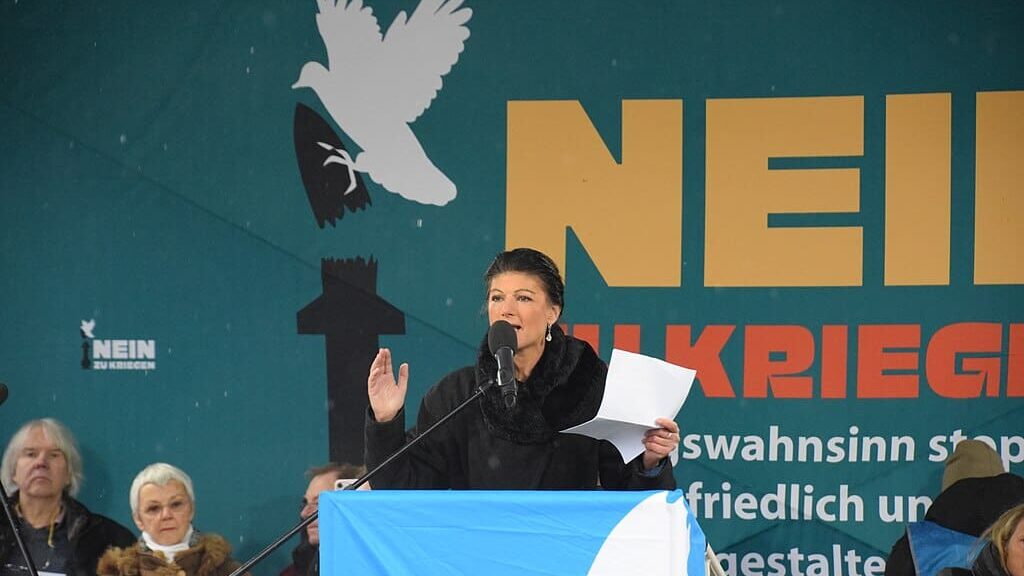
Sahra Wagenknecht speaks at the peace demonstration ‘No to Wars – Stop Arms Madness – Shape the Future Peacefully and Justly’ on November 25, 2023, Berlin
Photo: F3RaN, CC BY-SA 4.0, via Wikimedia Commons
Left-wing populists were unable to form a new parliamentary group in the European Parliament (EP), having failed to reach the minimum number of affiliated parties when the pre-existing Left group successfully poached prospective members.
German MEP Sahra Wagenknecht and her left-wing populist, anti-woke, anti-mass migration Bündnis Sahra Wagenknecht (BSW) party scrambled to meet the seven-party requirement to register a new group, but their potential ally, Italy’s Five Star Movement, opted instead for the Left group.
Having kept her alliances under wraps before Tuesday, Wagenknecht admitted that her prospective faction was not going to materialise. Party spokesman Fabio de Masi blamed the recruitment shortfall on the “powerful levers” exercised by larger EP groupings.
Wagenknecht split from her former comrades in the German Die Linke party last year and her BSW quickly surged to become the primary left-wing opposition party in the country. Criticisms of mass immigration and ‘identity politics’ from a socialist perspective have won over new supporters.
Since February, Wagenknecht has aimed to establish an alliance of anti-woke socialist MEPs, critical of unequivocal support for the Ukrainian war. The ruling Slovakian Smer party of Robert Fico and the Italian Five Star Movement were originally rumoured to have considered joining the group.
Instead, the Five Star Movement on Tuesday formally joined the Left group, which includes Spain’s Podemos, Greece’s Syriza, and Ireland’s Sinn Féin. The group officials demanded that, before joining, their new Italian affiliates sign a pledge to protect asylum seeker rights and the ‘rule of law.’
Wagenknecht’s six BSW MEPs will now sit as non-attached in the European Parliament, a move that will deprive them of some funds and speaking time in Brussels decision-making. Wagenknecht loyalists say that the prospect of a future coalition of anti-woke leftists is not entirely out of the question in the years ahead.
Political horse trading continues in the European Parliament this week as national parties coalesce into new ideological groupings. The prospect of a new right-wing faction, reflecting the changes wrought by recent European elections, will be a defining theme in the weeks ahead of the Parliament’s first sitting on July 16th.
